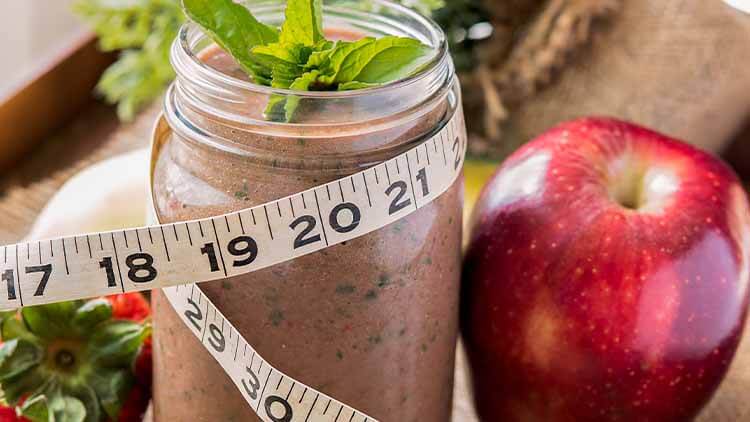
Liquid Diets
Liquid diets have recently become the talk of the town as an effective weight-loss technique. By replacing meals with liquids, these diets are often prescribed to patients recovering from surgery or severe gastrointestinal (GI) conditions.
Since liquids don’t contain any fibers or hard to digest substances, liquid diets give your GI tracts a break and, therefore, allow you to heal while keeping up with your nutrient intake.
Liquid diets for weight loss follow the same principles, but there is a debate about how effective these actually are. This blog will discuss various liquid diets for weight loss and, if you’re wondering if liquid diets work, their effectiveness.
- What are liquid diets?
- How do liquid diets work?
- Are liquid diets safe?
- Types of liquid diets for weight loss
- Liquid diets alternatives
What Are Liquid Diets?
Liquid diets are a dietary regimen that involves the consumption of clear liquids that don’t turn opaque at room temperature. These include fruit juices without pulp, clear broths, and gelatin.
Depending on the condition of the patient or what your end diet goals are, you might choose to include honey and sugar into your diet as well. These diets are designed to ensure full hydration while providing the body with a steady stream of electrolytes so that you remain functional.
These diets are used in medical settings to help with patient healing and there is an increasing amount of evidence for the effectiveness of these diets in helping weight management for obese patients.
When conducted under medical supervision, these diets can help achieve weight loss of greater than 20%. As such, there is a huge potential for liquid diets to help you manage your weight goals to live a healthier life.
These diets aren’t intended to be followed in the long run, because you would run the risk of developing nutritional deficiencies. Even though it’s possible for you to get your daily intake of vitamins, proteins, and other nutrients; cutting out carbohydrates and fats for long periods of time can be detrimental to your health.
The liquid diet foods list is as follows:
- Water
- Coffee or tea
- Pulp-free fruit juices
- Gelatin
- Yogurt
This is by no means an exhaustive list of foods for a liquid diet, but these are some of the more common liquids that people consume during one.

How Do Liquid Diets Work?
Irrespective, there are significant advantages to liquid diets. These include:
Effective Calorie Reduction
Any food you eat is chock-full of carbohydrates and fats which are deposited in the body as adipose tissue (fat tissue). Although fat and carbs are always seen as undesirable, both carbohydrates and fat are essential sources of energy in the body and for the development of muscles and cells.
The liquid diet aims to eliminate the consumption of calories in the form of carbohydrates and fats by replacing meals with sugary beverages or those high in electrolyte concentrations.
The plan involves replacing meals with nutrient-rich liquids such that you expend more carbohydrates than you consume. Over a longer stretch of time, if you consistently follow these diets you will begin to experience significant weight loss.
Whether or not this weight loss is permanent has yet to be seen, as experts are of the opinion that liquid diets may not be a long-term solution to weight loss. Instead, they predominantly choose to use it to change eating patterns.
The aim is to require people to sate their hunger with liquids rather than with more food until such a time comes when they habitually just eat less. For these diets to assist with long-term weight loss, these need to be combined with reduced food consumption.
Easy to digest
Liquids have zero fiber in them, which makes them easy to consume and digest. If you have trouble digesting certain types of food because these are part of a diet, then a clear liquid diet is perhaps the most effective replacement.
You will not feel bloated, nauseous, or experience any of the symptoms that accompany other diet plans with their specific food requirements.
Convenience
Liquid diets are also really convenient since you won’t need to buy any special food to keep up.
You can buy fruit juices off the market and you won’t have to go out of your way to find special foods that are required by certain diets. It’s easy peasy!

Are Liquid Diets Safe?
Liquid diets involve cutting out entire food groups from your dietary regimen. Depending on the sort of diet you’re going for, you will need to cut out carbohydrates or proteins from your diet altogether.
Although this might help you lose weight in the short-run, there are plenty of long-term risks in the form of nutritional deficiencies. In fact, it’s very likely that you might also experience certain short-term side-effects, such as:
Constipation Risk
As we’ve said before, liquids have absolutely no fiber in them. Fiber is an essential requirement for healthy and consistent bowel movements. With a liquid diet, you cut out all of the fiber in your diet which might lead to constipation and other gastrointestinal dysfunctions.
Gallstone Risk
Research indicates that people who go on crash diets like the liquid diet are much more likely to develop gallstones.
Cutting out calories from the diet and reducing calorie intake down to 500 calories a day led to the development of gallstones in 64 people in the sample. Of these cases, 48 required immediate hospitalization.
Risk Of Nutritional Deficiencies
As with all forms of dieting, the liquid diet requires reducing your calorie intake to help you lose weight. Once you’ve replaced all major food groups from your diet, you will not only begin to experience a carbohydrate deficiency, but also use up the nutrient reserves in your body.
A pure liquid diet won’t contain proteins or vitamins that are essential for health. Thus, prolonged liquid diets will induce nutritional deficiencies and convert your weight loss into weakness and frailty of the body.

Types of Liquid Diets for Weight Loss
There are multiple liquid diet options that you could consider for your weight loss goals. The basic examples of liquid diets that work are:
Cleansing or Detox Liquid Diet
Detoxification (Detox) diets incorporate a wide range of approaches that include outright fasting or juice fasts. These diets claim to help eliminate the harmful substances from the body, but it remains unclear what these harmful substances are.
However, there is reason to believe that these might help with weight loss owing to the low-calorie juices that people consume during the process.
These are different from medically supervised diets in the sense that these eliminate solid foods from the diet completely. People usually go on cleansing liquid diets to achieve drastic weight loss within short periods of time, while at the same time hoping to remove various toxins from the body.
Some common examples of a Detox liquid diet include:
- The Master Cleanser – This is a 10-day program where people replace all meals with a mixture of water, lemon juice, cayenne pepper, and tree syrup. The cleanse helps achieve weight loss and improve skin, hair, and nail health.
- The Liver Cleansing Diet – Shifting to a vegetarian, high fiber, low fat, and dairy-free diet for 8 weeks. The diet is supposed to help lose weight, improve liver functioning, and also increase energy levels.
There are other commercial diet options that guarantee varying degrees of weight loss for the user. However, there is little evidence for how effective these are and what mechanisms these use to achieve weight loss.
Meal Replacement Liquid Diet
These diets are probably the best liquid diets to achieve weight loss fast. These are often prescribed to patients of obesity to help cut down their weight.
The overall goal of these diets is to help people reduce the amount of hunger they feel by having them drink healthy juices instead of eating. Over time, the diet aims to change eating patterns in obese and diabetic patients by replacing meals with liquids instead.
Many people claim that liquid-only diets like cleanses don’t really help with long-term weight loss because you just gain the weight back when you come back from fasting. Compared to cleanses, meal replacement liquid diets require people to replace one or two meals a day with juices instead and focus on consuming low-calorie meals.
When implemented for long periods of time, these eliminate the risk of nutritional deficiencies and help people maintain healthy weight goals for long periods of time. As such, the meal replacement liquid diet is perhaps the best liquid diet that anyone could implement to achieve their weight loss goals.
Medically Supervised Liquid Diets
These are liquid diets which doctors prescribe for patients who are either recovering from surgery, suffering from some gastrointestinal conditions, or as preparation for certain types of surgery.
Obesity increases the risk of complications during surgical procedures, which is why people are required to lose weight before surgery. Doctors and dieticians develop rigorous diets that are supposed to help lose weight fast to prepare their patients for surgery or reduce the risk of surgical complications.
Additionally, people are also required to stay on liquid diets to help them recover from various types of surgeries or as a way to help them cope with the nutritional deficiencies threatened by certain conditions.

Liquid Diet Alternatives
Considering the restrictions of the effects of liquid diets to short-term weight losses and the shortcomings of these diets by threatening nutritional deficiencies, there are other options you might want to try out. These include:
Gastric Balloons
Gastric balloons are silicone-filled bags that take up space inside the stomach to make you feel constantly full. The insertion of these balloons is a minimally invasive procedure and these are guaranteed to help reduce the portion size of your food intake.
Over time, with the smaller food portions, you will lose weight and you will get into the habit of eating less. As such, gastric balloons are an effective weight loss solution.
Gastric balloons are a less preferred method of weight loss because of the possible complications that come with these. Sometimes the balloons rupture, at others the balloon moves around to induce pain and it’s entirely possible that you might also experience infections from the insertion of the balloon. Additionally, these balloons can be really costly.

Gastric By-pass
A gastric by-pass is a surgical procedure which reduces your stomach’s capacity to hold food. As such, these surgeries will reduce food intake and you will experience significant weight loss.
However, these are rather invasive surgeries that pose significant risks of complications and infection. For these reasons, gastric by-passes are only prescribed for people who are morbidly obese and for whom the risk of surgery is less intense than the risk of staying obese.
Dietary Changes and Exercise
There’s only one risk-free way of losing weight and that is to change your eating habits in addition to regular exercise. If you can make it a habit to eat better and to get regular exercise you will find that you have much more strength and you lose significant weight in the process.
Exercise has been associated with a lower risk of obesity, diabetes and the development of cardiovascular conditions. As such, lifestyle changes, although difficult to initiate, offer much value in terms of ensuring your long-term good health and well-being.
When it comes to helping people lose weight, even medical experts prefer making lifestyle changes rather than relying on surgery or pharmaceutical alternatives to lose weight.
>>

Conclusion
In conclusion, liquid diets do present the potential for quick weight loss, but these aren’t without their risks. The science supports the efficacy of these to help people meet healthy weight goals, but there is much debate about whether these will help with long-term weight management. As such, this blog has spoken of liquid diets for weight loss and has provided insight into the question “do liquid diets work?”
There is only one way to ensure that you stay thin perpetually and that is through lifestyle changes which include low-fat diets and regular exercise. With these changes, you completely avoid the risk of developing health conditions common to liquid diets and also do away with the risk of developing deficiencies in the long run.




